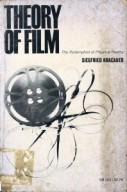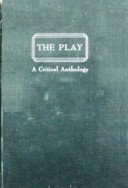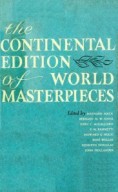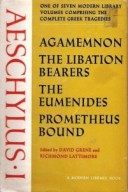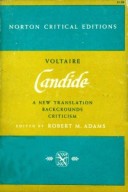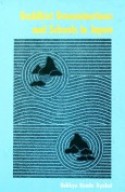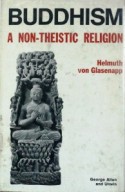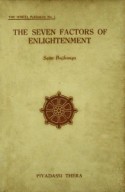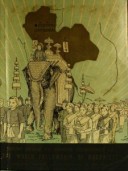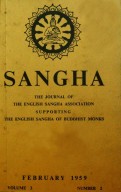Tìm Sách
Sách tiếng Anh-English >> The Higher Pali Course For Advanced Students
Thông tin tra cứu
- Tên sách : The Higher Pali Course For Advanced Students
- Tác giả : A. P. Buddhadatta Thera
- Dịch giả :
- Ngôn ngữ : Anh
- Số trang : 284
- Nhà xuất bản : Ceylon, Colombo Apothecaries Co.,
- Năm xuất bản : 1951
- Phân loại : Sách tiếng Anh-English
- MCB : 12100000011548
- OPAC :
- Tóm tắt :
PREFACE
After the publication of The New Pali Course the need for a higher Pali Course was keenly felt by students. To satisfy that need I compiled this volume some years ago but was not able to bring it out owing to the restrictions imposed by war-time controls.
This Higher Pali Course is to be considered as Part III of The New Pali Course, but I have changed the name as this portion is meant only for the advanced students and not for the beginners.
Professor Geiger’s Pali Literatur and Sprache is a book well known to learned Orientalists. But as it was in German very few in the East could make use of it. Fortunately, it is now translated into English and published in Calcutta, under the title Pali Literature and Language, in 1943. I was very keen to read this book in order to understand its scope, but could not get a copy until 1946, as there were many difficulties in obtaining books from India during the War. I could have spared myself much labour in tracing the passages which contain obscure forms of words if only I had this book before I began my compilation. Proffessor Geiger has traced a large number of passages containing unusual forms, but his statements are very brief. He shows only the place where a certain word occurs but does not give the full passages or the sentences along with them. Therefore only persons who possess a large number of Pali Texts are able to have full advantage of that book. Here I have reproduced in full the necessary passages from the texts, indicating at the same time the page numbers and the titles of the volume» from which they were taken. Moreover, his book is a philological treatise while mine deals more with grammar and composition. It would be of greater benefit if students study this book along with that of Dr. Geiger.
TABLE OF CONTENTS
CHAPTER I
Declension of Sa
Declension of the masculine nouns whose Nom. sing. ends with a
Conjugation of Kara (to do)
Examples. Group 1
Declension of maharaja, santa, and bhavanta
Some masculine nouns in the feminine sense
Conjugation of Hu (to be)
Examples. Group 2
Peculiar forms of some nouns and adjectives
Conjugation of Asa (to be)
Examples. Group 3
Peculiarities of some feminine nouns
Conjugation of Vada (to say)
Conjugation of Vaca (to say)
Examples. Group 4
Declension of kamma and ubhaya
Conjugation of Da (to give)
Examples. Group 5
Peculiarities of some adjectives and pronouns
Declension of Amu
Conjugation of Disa (to see)
Examples. Group 6
Declension of Kim
Conjugation of Na (to know)
Conjugation of Bru (to say)
Examples. Group 7
More details about numerals
Future forms in the past sense
Examples. Group 8
Some words that govern the instrumental
Examples. Group 9
Conjugation of Tha (to stand)
Conjugation of Su (to hear)
Conjugation of Gaha (to take)
Indeclinable ma
Enclictic forms of tumha and amha
Examples. Group 10
Various bases of the root I
Conjugation of Pada (to go), and Labha (to gain)
Examples. Group II
Conjugation of Han a (to kill), Hara (to carry), vi + hara (to dwell), Ha (to leave), etc.
Examples. Group 12
CHAPTER II
Denominative verbs
Onomatopoetic verbs
Desiderative verbs
Examples. Group 13
CHAPTER III
Passive forms
Examples. Group 14
CHAPTER IV
Analysis of sentences
Examples. Group 15
Definition of clauses
Various adverbial clauses
Examples. Group 16
TABLE OF CONTENTS
CHAPTER I
Declension of Sa
Declension of the masculine nouns whose Nom. sing, ends with a
Conjugation of Kara (to do)
Examples. Group 1
Declension of maharaja, santa, and bhavanta
Some masculine nouns in the feminine sense
Conjugation of Hu (to be)
Examples. Group 2
Peculiar forms of some nouns and adjectives
Conjugation of Asa (to be)
Examples. Group 3
Peculiarities of some feminine nouns
Conjugation of Vada (to say)
Conjugation of Vaca (to say)
Examples. Group 4
Declension of kamma and ubhaya
Conjugation of Da, (to give)
Examples. Group 5
Peculiarities of some adjectives and pronouns
Declension of Amu
Conjugation of DisA (to see)
Examples. Group 6
Declension of Kim
Conjugation of Na (to know)
Conjugation of Bru (to say)
Examples. Group 7
More details about numerals
Future forms in the past sense
Examples. Group 8
Some words that govern the instrumental
Examples. Group 9
Conjugation of Tha (to stand)
Conjugation of Su (to hear)
Conjugation of Gaha (to take)
Indeclinable ma
Enclictic forms of tumha and amha
Examples. Group 10
Various bases of the root I
Conjugation of PudA (to go), and LabhA (to gain)
Examples. Group 11
Conjugation of Hana (to kill), HarA (to carry), vi + hara (to dwell), Ha (to leave), etc.
Examples. Group 12
CHAPTER II
Denominative verbs
Onomatopoetic verbs
Desiderative verbs
Examples. Group 13
CHAPTER III
Passive forms
Examples. Group 14
CHAPTER IV
Analysis of sentences
Examples. Group 15
Definition of clauses
Various adverbial clauses
Examples. Group 16
The parts of analysis
Analysis of a simple sentence
Analysis of a compound sentence
Analysis of a complex sentence
Examples. Group 17
CHAPTER V
Syntax of nouns:–
Nominative
Accusative
Instrumental
Examples. Group 18
Dative
Ablative
Examples. Group 19
Genitive
Locative
Examples. Group 20
Some cases expressing the sense of some other cases
Examples. Group 21
CHAPTER VI
How to shorten a sentence
CHAPTER VII
Definition of the indeclinables
CHAPTER VIII
Some idioms and difficult passages
Some antithetics
Pali-English vocabulary
Index of important and obscure words
 Facebook
Facebook
 Google
Google
 Google+
Google+

